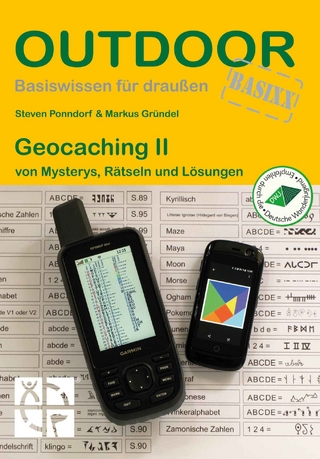
Water as a Catalyst for Peace
Routledge (Verlag)
978-1-138-57475-5 (ISBN)
Examining international water allocation policies in different parts of the world, this book suggests that they can be used as a platform to induce cooperation over larger political issues, ultimately settling conflicts. The main premise is that water can and should be used as a catalyst for peace and cooperation rather than conflict.
Evidence is provided to support this claim through detailed case studies from the Middle East and the Lesotho Highlands in Africa. These international cases – including bilateral water treaties and their development and formation process and aftermath – are analyzed to draw conclusions about the outcomes as well as the processes by which these outcomes are achieved. It is demonstrated that the perception of a particular treaty as being equitable and fair is mainly shaped by the negotiation process used to reach certain outcomes, rather than being determined mechanistically by the quantitative allocation of water to each party.
The processes and perceptions leading to international water conflict resolutions are emphasized as key issues in advancing cooperation and robust implementation of international water treaties. The key messages of the book are therefore relevant to the geo-political and hydro-political aspects of water resources in the context of bilateral and multilateral conflicts, and the trans-boundary management of water resources, which contributes insights to political ecology, geo-politics, and environmental policy.
Ahmed Abukhater is the Global Director of Product Management for Pitney Bowes, and an Assistant Professor of Geography and Planning at the University at Albany, State University of New York, USA. Previously, he served as Esri’s Global Industry Manager for Planning and Community Development and Director of PLACES in California, an instructor at the University of Texas at Austin, and Department Director, Planning & Sustainability Department, Ministry of Planning, Gaza, Palestine. He holds a PhD in Community and Regional Planning from the University of Texas at Austin, with a focus on transboundary water resources management and conflict resolution and hydro-diplomacy, a Master’s degree in Urban and Regional Planning from the University of Illinois at Urbana-Champaign and a Bachelor’s degree in Architectural Engineering. Throughout his career, he has authored numerous publications, served on many governing and advisory boards, and received over 20 prestigious awards for his work.
Introduction 1. Water Past and Present: Power, Conflict, Perception, and Equity 2. Research Questions, Hypotheses, and Methodological Design 3. Case Selection and Analysis 4. The Israel-Jordan Peace Treaty of 1994 5. The Lesotho Highlands Water Project Treat of 1986 6. Comparative Cross-case Analysis, Hydro-political Implications, and Lessons Learned 7. Conclusion and Future Research Appendix A: Research Methodological Design (Sequential Explanatory Design) Appendix B: Summary of the Conclusions of the Water Meetings
| Erscheinungsdatum | 11.10.2017 |
|---|---|
| Reihe/Serie | Earthscan Studies in Water Resource Management |
| Zusatzinfo | 30 Illustrations, black and white |
| Verlagsort | London |
| Sprache | englisch |
| Maße | 156 x 234 mm |
| Gewicht | 453 g |
| Themenwelt | Naturwissenschaften ► Geowissenschaften ► Geografie / Kartografie |
| Recht / Steuern ► EU / Internationales Recht | |
| Recht / Steuern ► Öffentliches Recht ► Umweltrecht | |
| Sozialwissenschaften ► Politik / Verwaltung ► Europäische / Internationale Politik | |
| Technik ► Umwelttechnik / Biotechnologie | |
| ISBN-10 | 1-138-57475-9 / 1138574759 |
| ISBN-13 | 978-1-138-57475-5 / 9781138574755 |
| Zustand | Neuware |
| Haben Sie eine Frage zum Produkt? |
aus dem Bereich


